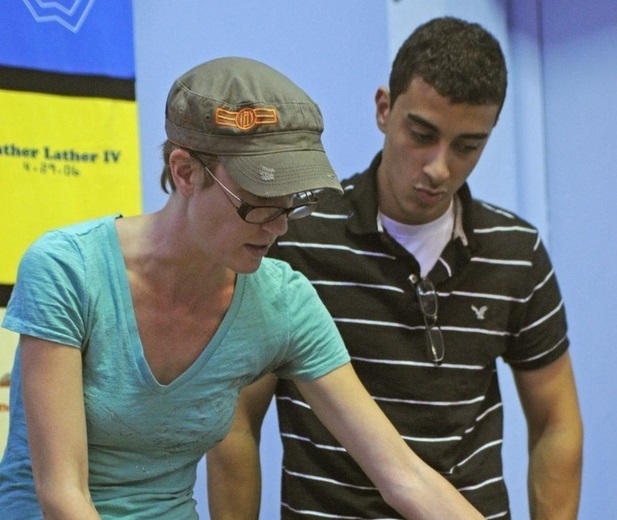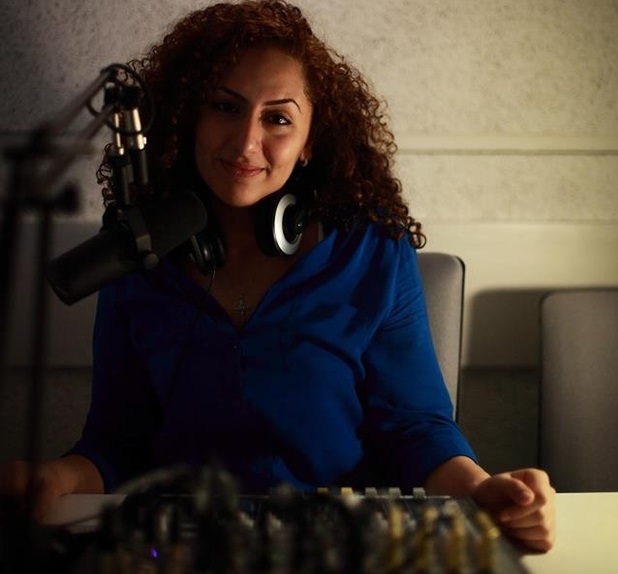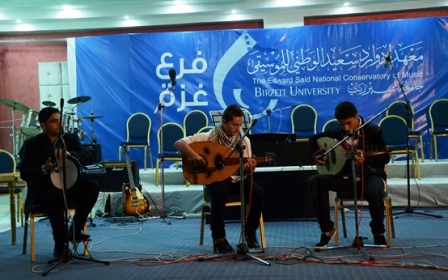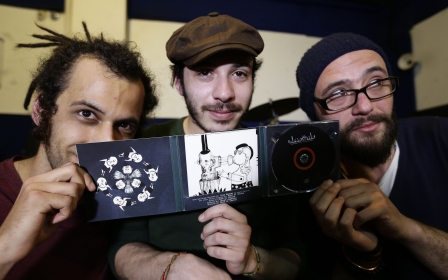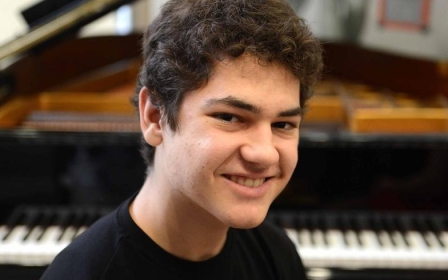Love of black music unites diverse and divided Israel
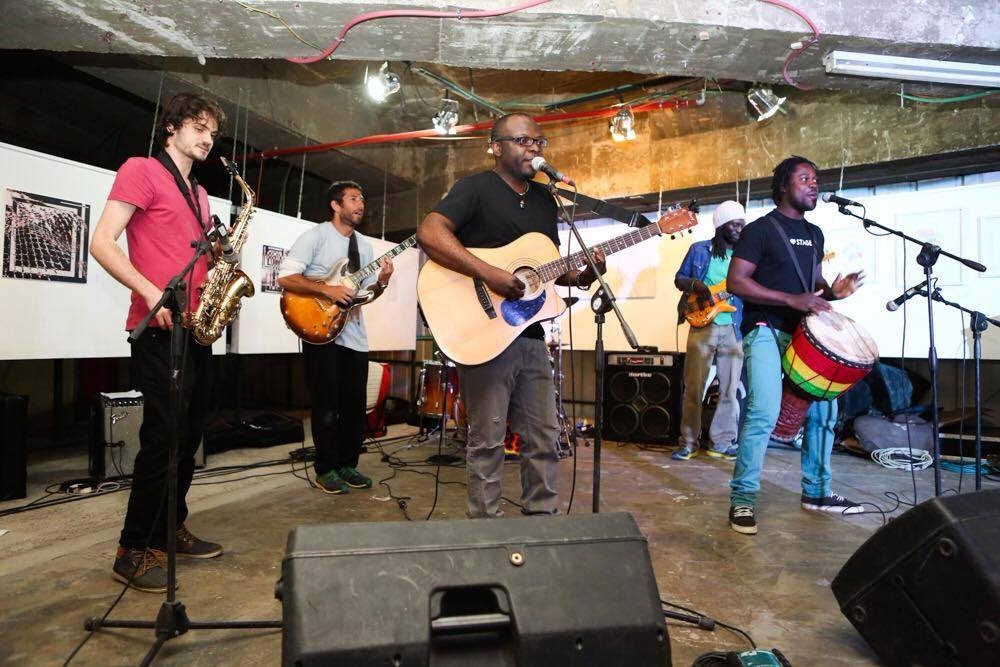
There is no other field in which the diversity of Israeli society is more present than in popular music. From international names such as Idan Raichal, who produced a series of hits inspired by Ethiopian music, to Ethiopian-Israeli musicians like Esther Rada and Gili Yalo, to local groups comprised of African migrants such as Afro Po or Groove Ambassadors, to the young fans of hip-hop and reggae and wannabe rappers - Israelis love music whose roots are African.
Sarah Hankins, who recently received her doctorate from Harvard University, studies black music in Israel. “We're still at the point where nobody in the world can really grasp that there are black people in Israel,” she says. ''Israeli does not equal Jewish, but Israel likes to pretend that this is the case and outsiders usually don't know any better,” she observes. “Black music helps point up the truth of Israel, which is that it is the most demographically diverse nation-state in the Middle East.”
Hankins’ study reveals that just by listening to music, we can unearth experiences and narratives of lives in Israel that are otherwise hidden.
In an ethnically diverse country such as Israel, which is also a self-defined Jewish state, the meaning of “blackness” is complex. While blackness in the United States and Europe means to have roots in sub-Saharan Africa, blackness in Israel could mean, in sociological terms, being Palestinian, Mizrahi, Ethiopian, or being an asylum seeker and migrant from Sudan, South Sudan, Eritrea, or other sub-Saharan countries.
“All of [the above mentioned] groups are black, though Palestinians and Mizrahim are Middle Eastern black,'' Hankins explains. “There are enormous cultural, social, and political differences across communities, with the biggest differences apparent between Arab-world groups – Palestinians and Mizrahi – and sub-Saharan African groups – Ethiopians, Sudanese, Eritreans, and West Africans.
"Then the Ethiopians have major differences from the other sub-Saharan groups because they are Jewish and citizens. At the same time, all sub-Saharan groups do have certain shared experiences – perhaps most importantly, an awareness on the part of many of them that they are members of a transcultural black community of sorts.”
Besides listening to hundreds of songs and attending live performances and nightclubs, Hankins also met and interviewed musicians, producers, DJs, and dancers. She talked to them not only about music, but also about racism, nationalism, and about being black in the so-called Jewish state.
“Israel is a lot like the United States,” Sarah says, “though it does not have our history of slavery. Because Israel's multi-community African diaspora is relatively new – only 30-40 years old – black people in Israel have experiences that are not necessarily replicated in other regions with older Afro-diasporic presence such as Europe or the Americas.
"In addition, Israel's identity as a Jewish state is a unique condition, which affects life for Muslim and Christian refugees, asylum seekers, and workers. Israel is not worse in general than other countries, but it is from time to time worse. One example here would be Israel's lack of any programme for establishing refugee status, and its automatic indefinite detention of 'enemy' nationals.”
Hankins is referring to the detention and deportation of asylum seekers; there are 3,000 of them detained in the Holot detention centre in the south. “Black music points to Israel's growing role as a receiving country for non-Jewish migration flows from the developing world,” she elucidates. “For several decades, Israel has wanted to be considered a modern, Western-oriented, first world member of the international community, politically and even more so economically; yet it has discovered that it doesn't like what that means in practice, for example, being a receiving country for migrants and refugees.”
Ulrich Gotrand, a Congolese musician living in Tel Aviv and founder of the band Afro-Po, started out playing in Tel Aviv with African and Israeli musicians. “We influence Africans and Israelis who advocate for African asylum seekers and migrant workers in south Tel Aviv,” Gotrand tells me. “Our live performances bring them together. They work together, but also dance together. The music makes us a community.”
Global culture
Besides her comprehensive study of black musicians in Israel, Hankins also found a vibrant reggae and hip-hop scene, popular among young Israelis of all backgrounds. This, she says, is a testament to the cosmopolitan aspirations of young Israelis. ''They are sick of being told that they are different from the rest of the world, and they are sick of being the 'whipping boy' for the international left. Musical choices reflect a desire to break away from their parents' Israel and join as participants in global culture.”
These aspirations often conflict with the international Boycott, Divestment, and Sanctions (BDS) movement, which targets cultural figures as part of its campaign against the Israeli military occupation of Palestinian territories. Hip-hop artist Lauryn Hill, for example, cancelled her performance in Tel Aviv last year after she was urged by BDS activists to respect the Palestinian call for boycott. Many young Jewish-Israelis took to social media to condemn Ms Hill for what they took as a personal insult. The borders and separation that politics create shattered their view of themselves as equal members in a global village of music lovers.
For young Palestinian citizens of Israel, their love for global hip-hop and reggae is firstly political. “Dam [the first Palestinian hip hop trio] uses hip-hop to express their opinions about the conflict instead of using violence,” says Yvonne Saba, Jaffa-based Palestinian music journalist and radio host. “They identify with African-American rappers such as Tupac for having similar experiences as oppressed minorities. They’ve become a model of rebel music for youth who wanted to speak up against the Israeli occupation.”
Global hip-hop also represents a desire to break away from past traditions. “[Young Palestinians] constantly talk about trying to cut away from traditional ties and from the confines of the community,” explains Saba. “Dam have written songs about gender equality, and they consider themselves male feminists. The members of Dam are a great example of cutting old traditions and changing for the bettering of our community.”
Efrat Yerday, an Israel-born Ethiopian activist, is a lecturer at Ben-Gurion University, columnist, and an occasional DJ. I asked her how music expresses the identity of young Ethiopian-Israelis.
“Black music is the most popular music among the youth, black or not. For young Ethiopians in Israel, global black music is more than music: it gives them a sense of identity and belongingness by connecting them to a global black community,” Yerday told me.
“The experiences of racism that young Ethiopians suffer from is expressed in the politically charged hip-hop culture and reggae music. For example, Ethiopian-Israelis are victims of police brutality, like other black communities around the world, and this experience is conveyed in hip-hop, rap, and reggae. Their attraction to the music, therefore, is based on a shared experience with other black communities.”
“But this is not the only reason,” she continues. “Ethiopian-Israelis see how here they are considered backward and weak, while hip hop and reggae stand for pride and power. So they embrace this music to feel empowered and proud.”
Before we end our conversation, I ask Hankins if she believes that music, musicians, and music lovers can change the world with it.
“Yes,” Hankins answers without hesitation. “Black music in Israel, especially when it is performed by black people, can be subversive. The more it gets co-opted and appropriated by non-African Israelis, the less subversive it is.”
Stay informed with MEE's newsletters
Sign up to get the latest alerts, insights and analysis, starting with Turkey Unpacked
Middle East Eye delivers independent and unrivalled coverage and analysis of the Middle East, North Africa and beyond. To learn more about republishing this content and the associated fees, please fill out this form. More about MEE can be found here.


